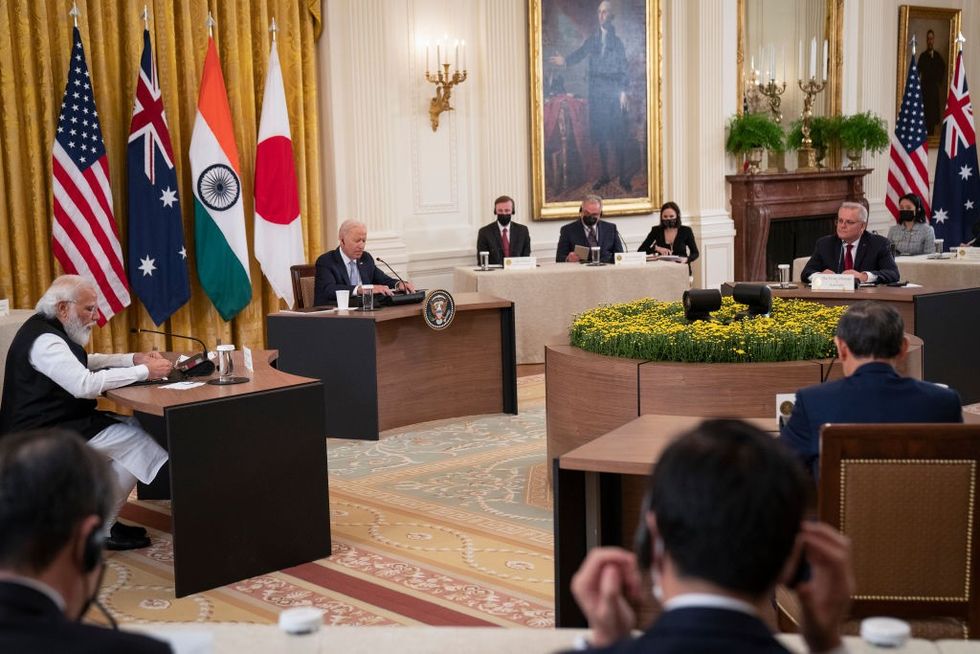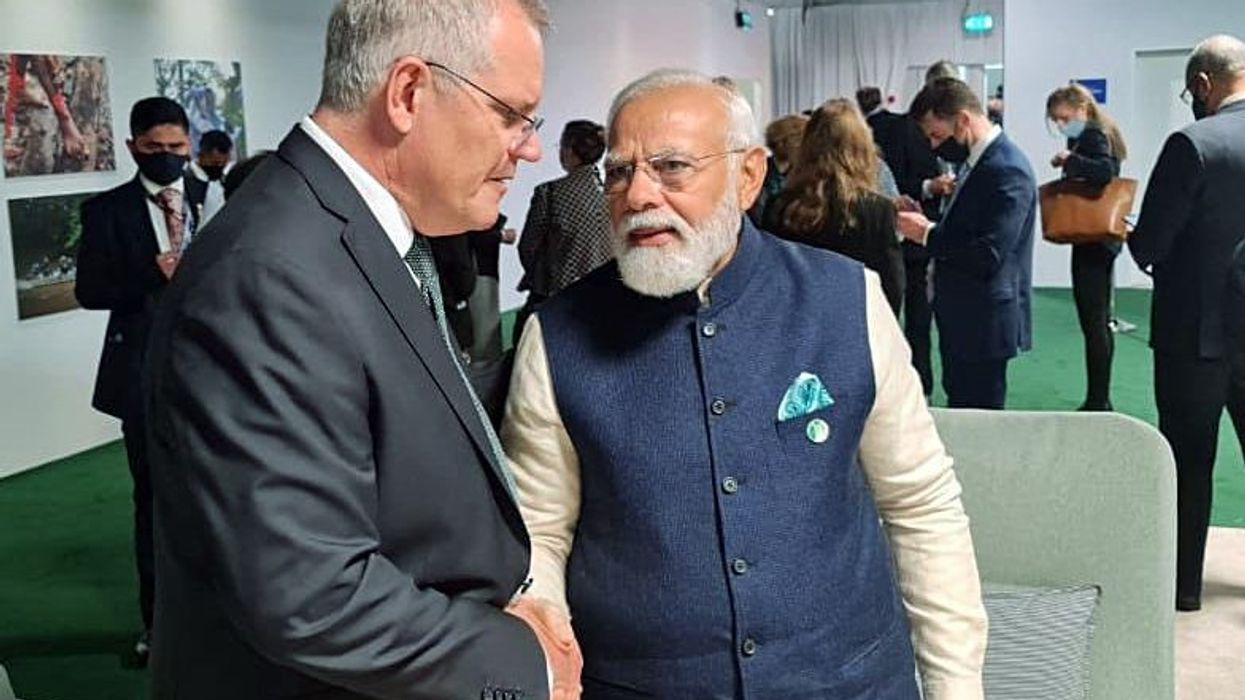INDIA and Australia have underlined the need for an immediate cessation of hostilities in Ukraine.
Indian prime minister Narendra Modi and his Australian counterpart Scott Morrison made the assertion during their virtual summit on Monday (21).
According to a joint statement, both nations stressed that the contemporary global order has been built on UN Charter, international law and respect for states' sovereignty and territorial integrity.
During the summit, Modi and Morrison said Russia must be held accountable for the loss of lives in Ukraine and care must be taken to ensure that such "terrible events" never occur in the Indo-Pacific region.
The joint statement noted the two leaders expressed their serious concern about the ongoing conflict and humanitarian crisis in Ukraine.
The two leaders agreed to remain closely engaged on the issue and its broader implications for the Indo-Pacific, the statement added.
At a media briefing after the summit, Indian foreign secretary Harsh Vardhan Shringla said that Morrison expressed understanding of India's position on Ukraine.
There was a clear sense that a conflict in Europe "should not be a reason for us to divert our attention from the Indo-Pacific region", he said.

The joint statement mentioned that at the summit, the two leaders also expressed their shared commitment to a free, open and rules-based Indo-Pacific supported by a robust regional architecture with the ASEAN at its centre.
They reaffirmed their commitment to an inclusive and prosperous region in which the sovereignty and territorial integrity of all states is respected and countries are free from military, economic and political coercion, the statement said.
Modi and Morrison also underscored their commitment to cooperation between India, Australia, Japan and the US in advancing the Quad's positive and ambitious agenda to promote regional stability and prosperity.
They welcomed the virtual meeting between Quad leaders in March and looked forward to the next in-person leaders' meeting in the coming months, the statement said.
They also welcomed the close cooperation between India and Australia on the Indo-Pacific Oceans Initiative.
Modi also appreciated the briefing by Morrison on the Australia-UK-US (AUKUS) partnership and the leaders recognised Australia's commitment to not develop nuclear weapons and to uphold the highest standards of non-proliferation, the statement noted.
According to the statement, the leaders affirmed their commitment to further strengthening cooperation in the Indian Ocean region and with other Indian Ocean countries, including their support for the Indian Ocean Rim Association.
(PTI)





